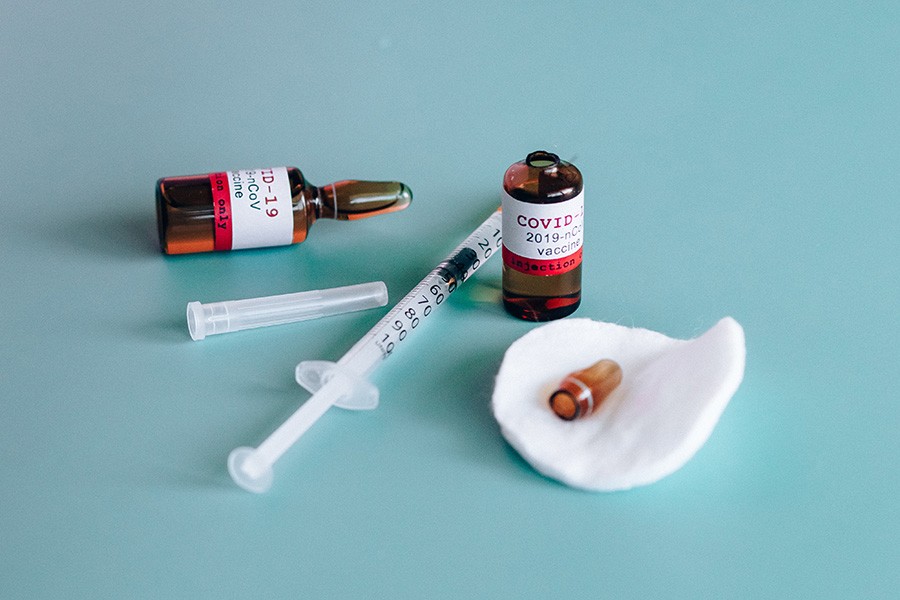As the country is waiting with bated breath for vaccine roll-out on January 27, not every aspect of the programme has been clarified enough. App-based registration was reported to be a criterion for receiving Cvishield shots. Now, report has it that side by side another method is being developed to vaccinate the elderly people on a priority basis. The gift consignment of 2.0 million vaccines from India arrived rather earlier than anticipated. So far Beximco is the sole pharmaceutical company in the country to have struck a deal with the Serum Institute of India (SII) for import of 30 million doses of the Oxford-AstraZeneka-developed vaccine to be produced at SII. It will receive 5.0 million doses a month.
What transpires from such an arrangement is that 16 million people of at least 80-100 million population needing inoculation can be covered by these vaccines. Each person will need two shots. To be on the safe side, perhaps more than 100-120 million out of 160 million population will have to be covered by the vaccination programme. One less known fact is that even vaccination does not guarantee full protection. Danny Altmann, professor of immunology at Imperial College London and Deborah Dunn-Walters, professor of immunology at the University of Surrey advise people not to drop the guard even after inoculation and also behave as if they 'hadn't had the vaccine yet'. There is no evidence, they argue, that 'having had the vaccine will stop you getting the virus and passing it on'.
This should not, however, discourage people to receive vaccine shots. When companies such as Pfizer-BioNTech, Moderna and Oxford-AstraZeneca claim that their vaccines are well over 90 per cent effective, they do not make any hollow boasts. Their results were obtained after the third phase of trial. The two British expert immunologists have only been overcautious for two reasons: the first one is that no vaccine is 100 per cent effective and then the effectiveness varies depending on body constitution or other factors. As many as 23 elderly Norwegians died after receiving Pfizer-BioNTech shots. At the same time, Oxford-AstraZeneca version has proved more effective for the elderly people.
What needs to be particularly noted is that vaccines had to be recommended on an urgent basis. All these vaccines are first generation vaccines and leaves scope for improvement and at least a decade is the minimum time frame for achieving their ultimate standardisation. This should not however be taken as an opportunity for rumour-mongering. Now that social media are hyperactive, they spread misinformation and disinformation well before the wind.
In this context, therefore, the best way to counter such uninformed and unverified news is to launch an informed and factual campaign preferably on the electronic media and in printed leaflet or brochure form. There are, however, several unanswered questions that have to be answered. When will the country be able to obtain its required doses? Will it depend entirely on SII for supply of Covishield or look for multiple sources? The country also expects to have 68 million doses of vaccines from the Gavi Vaccine Alliance, a public-private global health partnership. Here the important question is when.
Clearly, the country will get supplies in a staggered manner over quite a few months, if not years. So, there is a need for smooth coordination and reaching those to people who are backward and vulnerable. The fact that some people have apathy to vaccines ---any vaccine ---has also to be taken into account. Then there is confusion about the second shot. Dr. Anthony Fauci, renowned expert, claims that there is no harm if the second jab is administered in seven weeks as against the usually recommended three and four weeks.
In case of multiple vaccines, another problem arises. When the recipients of the first shot do not know which vaccine they received, is it safe to administer another brand for the second jab? It is wise to avoid such a mix. So coordination matters doubly. The second dose initiates the process of B-cell or white blood cell maturation, with the cell producing antigen to better target the pathogen. Then the other activated one, T-cell or memory cell precisely identifies, by virtue of memory, the pathogen and kills it.
All such issues have to be explained in clear terms for people to understand why they will get vaccinated. The success of the vaccination programme will depend on carrying it out sincerely and transparently.


